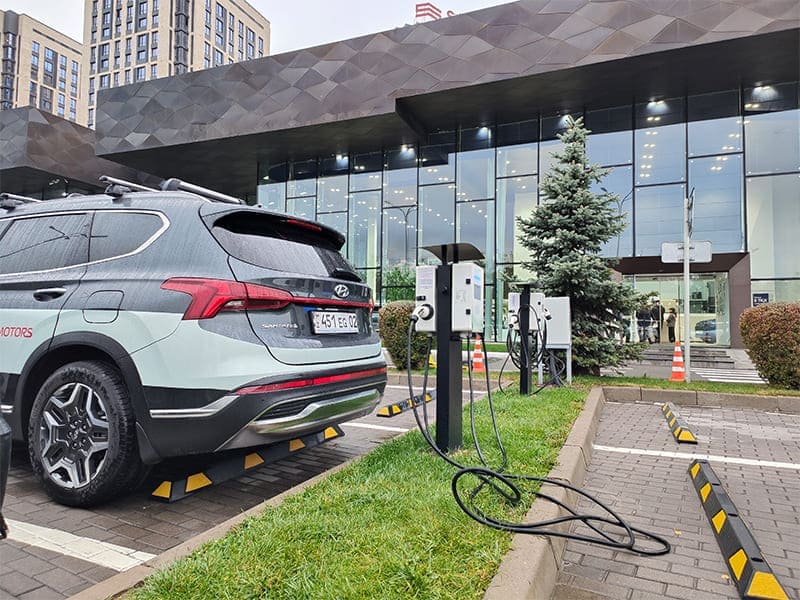The electric vehicle charging landscape is diverse. Consequently, business owners often explore cost-effective solutions. A common question arises about the 7kw EV charging station. Can this typically residential unit serve commercial purposes? The answer is nuanced but increasingly positive. This article will investigate this very question.
We will examine suitable commercial applications. Furthermore, we will discuss the inherent limitations. The role of manufacturers like Aegen is also crucial. This Chinese company supplies components and complete stations. Their global reach informs this discussion. Deploying a 7kw EV charging station requires strategic planning.
Ultimately, its viability depends on specific business needs. Understanding the context of commercial charging is essential. Commercial sites usually demand high-power DC fast chargers. These units are deployed in shopping malls and office parks. They are also vital on highways and in public venues.
Additionally, you find them in residential complexes and hospitals. Parking facilities, schools, and large fleets use them too. These commercial DC EV charging stations support various plugs. These include CCS1, CCS2, and GB/T standards. CHAdeMO and NACS are also common.
Conversely, commercial AC chargers serve different niches. They are perfect for longer-duration parking. For instance, they are installed in corporate garages. Hotel parking lots and public residential areas also use them. These stations often feature Type 1 and Type 2 connectors. The GB/T and NACS plugs are also available.
Defining the 7kw EV Charging Station
A 7kw EV charging station is an AC charging unit. It operates on a 240-volt electrical circuit. This power level is considered Level 2 charging. Therefore, it charges significantly faster than a standard outlet. It is the most popular choice for home installation.
Many homeowners select the 7kw EV charger station. It offers a good balance between cost and speed. Typically, it can fully charge an EV overnight. This takes approximately six to eight hours. Its hardware is relatively compact and simple.
Manufacturers like Aegen produce reliable versions. These units are robust and user-friendly. The 7kw EV charging station is a workhorse for daily use. It is not designed for rapid, high-turnover charging. Its primary strength is steady, overnight replenishment.
Suitable Commercial Applications for a 7kw EV Charging Station
Yes, a 7kw EV charger station can be used commercially. However, its application is highly specific. It excels in locations where vehicles park for many hours. For example, workplace parking is an ideal scenario. Employees can charge their cars throughout the workday.
Similarly, a 7kw EV charging station fits well in hotels. Guests can conveniently recharge their vehicles overnight. This provides a valuable amenity. Furthermore, some apartment complexes use them. They offer a solution for residents without private garages. What’s the difference between 11kw and 22kw EV charging station?
Certain restaurants or cinemas can also benefit. Patrons staying for two to three hours can gain a useful charge. 11kw & 22kw & 7kw EV charging station supports this model perfectly. It is a low-cost way to enter the EV charging market. It enhances customer service and attracts EV drivers.
Limitations and Strategic Considerations
However, the 7kw EV charging station has clear limitations. Its charging speed is its main constraint. It is not suitable for high-traffic locations. For instance, a busy highway service station cannot rely on it. Drivers there need a 15-30 minute charge, not hours.
Therefore, turnover rate is a critical factor. Deploying a 7kw EV charger station requires managing user expectations. Drivers must know they will be parked for an extended period. Consequently, clear signage and time-limit enforcement are essential.
Moreover, the commercial return per unit is lower. A single DC fast charger can serve dozens of cars daily. A 7kw EV charging station may only serve one or two. The investment must be calculated based on utility, not just hardware cost. It is a support amenity, not a primary revenue driver.
The Role of Manufacturers Like Aegen
Manufacturers are key to this ecosystem. Aegen, a Chinese maker, provides vital components. They also supply complete charging stations. Their product range includes various power levels. Importantly, Aegen offers free technical support services. They also provide customization options.
This is crucial for commercial clients. A business might need a specific feature. Aegen can potentially tailor a 7kw EV charger station. They collaborate with many distributors and installers. Furthermore, they supply assembly companies with parts.
Aegen’s products are sold globally. Their stations operate in Europe and the Middle East. They also serve markets in South America and Central Asia. This global experience ensures product reliability. It gives commercial buyers confidence in their investment.
Comparing Home vs. Commercial Use
The fundamental technology is often identical. A 7kw EV charging station for home use is similar to a commercial one. However, commercial models may have enhanced features. These often include robust construction for public areas.
They also feature advanced management software. This software enables remote monitoring and payment systems. Consequently, the commercial version of a 7kw EV charger station might cost more. This is due to these added functionalities and durability requirements.
For a business, this software is non-negotiable. It allows for monetization and operational control. Therefore, when considering a commercial deployment, choose a commercial-grade model. Aegen likely offers such specialized versions.
Conclusion: A Niche but Valuable Tool
In conclusion, a 7kw EV charging station has a commercial place. It is not a one-size-fits-all solution. However, it is perfect for targeted, long-duration parking scenarios. It offers businesses an affordable entry into EV infrastructure.
It enhances customer and employee satisfaction. Strategically deployed, a 7kw EV charging station is a smart investment. It complements a broader charging network. Companies like Aegen enable this flexibility. They provide the necessary hardware and support.
Ultimately, the question is not “can it,” but “where should it.” The 7kw EV charging station is a valuable commercial tool. Its use will grow as the EV market expands. Businesses should seriously consider its potential.

